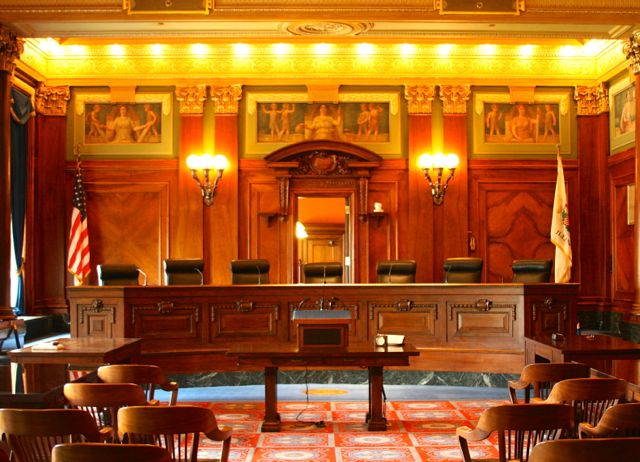Anytime you feel as though you are having a bad day or month for that matter, all you need to do is look to Harvey Weinstein and you will immediately realize that all troubles are relative. I must admit that I had no idea who Weinstein was until the avalanche of allegations surfaced about the apparently troubled and repulsive Hollywood mogul. As a father of three daughters I am delighted to see the destruction of his career; although I am equally disturbed by the hypocrisy of those that suddenly denounce this individual after decades of turning a blind eye while profiting from the fruits of his labor. Weinstein may have been the catalyst; but the bloodshed did not stop with him. Below is a look at some of the national figures accused since the Weinstein accusations emerged:
Celebrity chef John Besh ; Comedian Louis C.K.; Cinefamily executives Hadrian Belove and Shadie Elnashai; Actor Richard Dreyfuss; Film producer Adam Fields; Director-producer Gary Goddard; Casting employee Andy Henry ; Actor Dustin Hoffman; Actor Robert Knepper; Showrunner Andrew Kreisberg; Pixar and Disney Animation chief John Lasseter; Actor Jeremy Piven; Filmmaker Brett Ratner; Comedy festival organizer Gilbert Rozon; Producer Chris Savino; Actor Steven Seagal; Def Jam Records mogul Russell Simmons; Actor Tom Sizemore; Actor Kevin Spacey; Actor Jeffrey Tambor; Actor George Takei; Writer-director James Toback; “Mad Men” creator Matthew Weiner; Actor Ed Westwick; Billboard magazine executive Stephen Blackwell; Penguin Random House art director Giuseppe Castellano; New Republic publisher Hamilton Fish; Journalist Mark Halperin; Artforum publisher Knight Landesman; NPR news chief Michael Oreskes; Amazon executive Roy Price; PBS and CBS host Charlie Rose; New York Times White House reporter Glenn Thrush; Webster Public Relations CEO Kirt Webster; Rolling Stone publisher Jann Wenner; New Republic editor Leon Wieseltier; NBC News booker Matt Zimmerman; Florida Democratic Party Chairman Stephen Bittel; Former President George H.W. Bush; U.S. Rep. John Conyers (D-Mich.); Two Minnesota state lawmakers — Democratic Sen. Dan Schoen and Republican Rep. Tony Cornish; British Defense Secretary Michael Fallon; U.S. Sen. Al Franken (D-Minn.); Kentucky House Speaker Jeff Hoover; U.S. Senate candidate Roy Moore (R.-Ala.); Johnny Anderson, a staffer for Democratic Louisiana Gov. John Bel Edwards; International Olympic Committee member Alex Gilady; and Former South African soccer association president Danny Jordaan.
The list above represents people from groups which often lack sympathy from the general public: namely, celebrities, athletes and politicians. However, it would be naïve to think that this problem is only experienced by the “rich and famous.” Sexual harassment touches every profession in all area of society. Accordingly, the EEOC has taken swift action. On November 22, 2017, the Equal Employment Opportunity Commission (“EEOC”) published new informal guidance on its website regarding harassment, entitled “Promising Practices for Preventing Harassment.” The following are some of the highlights of the recent publication.
The EEOC encourages employers to adopt policies and procedures that:
- Provide multiple avenues for making complaints.
- Periodically evaluate the effectiveness of the organization’s strategies to prevent and address harassment, including reviewing and discussing preventative measures, complaint data, and corrective action with appropriate personnel.
- Ensure that concerns or complaints regarding the policy, complaint system, and/or training are addressed appropriately.
- Direct staff to periodically, and in different ways, test the complaint system to determine if complaints are received and addressed promptly and appropriately.
- Conduct anonymous employee surveys on a regular basis to assess whether harassment is occurring, or is perceived to be tolerated.
Among other features, the EEOC suggests harassment policies that also:
- Describe processes for employees to informally share or obtain information about harassment without filing a complaint.
- Include a statement that employees are encouraged to report conduct that they believe may be prohibited harassment (or that, if left unchecked, may rise to the level of prohibited harassment), even if they are not sure that the conduct violates the policy.
- State that the employer will provide a prompt, impartial, and thorough investigation.
- Respond to complaints by employees and by other individuals on their behalf.
- Include processes to ensure that alleged harassers are not prematurely presumed guilty or prematurely disciplined for harassment.
The EEOC also encourages employers to appropriately document every complaint, from initial intake to investigation to resolution, use guidelines to weigh the credibility of all relevant parties, and prepare a written report documenting the investigation, findings, recommendations, and disciplinary action imposed (if any) and corrective and preventative action taken (if any).
Local law enforcement agencies should take notice of the EEOC’s recommendations and ensure that supervisors and managers may benefit from additional training. Employers should consider and implement new forms of training, such as workplace civility, respectful workplace, or bystander intervention training. Times have changed and law enforcement has changed from a predominantly male work force to one more diverse.
I don’t think a guy like Harvey Weinstein would have lasted too long as a police officer. Harvey’s attempts at exposing/pleasuring himself would have ended with a steel-toed-boot to the giblets. Humor and good natured ribbing have long been associated with police officers who need an outlet to deal with the violence and despair they experience on a daily basis. Police officers respond to situations that would cause the average citizen to curl into a fetal position. No matter how dangerous or troubling things get, police must maintain their composure and act as a professional. Making sure their workplace is free from sexual harassment should be one of their easiest assignments.


